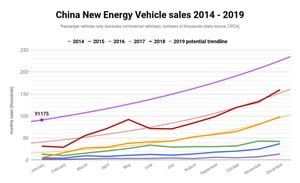With polls closed and votes counted, Donald Trump has once again claimed victory, overwhelming Kamala Harris during the 2024 presidential election. This win signals not only Trump's resilience after numerous challenges but also reflects deep shifts within American political dynamics.
The results rang loudly across the nation: Trump emerged victorious with significant support from diverse demographics, including 33% of voters of color, according to exit polls. This statistic caught many, including radio host Charlamagne tha God, off-guard during his conversation with ABC's Jonathan Karl, where he exclaimed, "No! Really?". The results raised eyebrows, especially considering many analysts assumed Trump's controversial history would prevent him from appealing to non-White voters.
Despite early predictions of Harris swimming along with youthful voter support, she seemed unable to capture the enthusiasm typically enjoyed by Democratic nominees. According to exit polling data, not only did Harris underperform among younger voters—typically supportive of Democratic candidates—but she failed to reach the 60% threshold winning candidates have historically obtained.
Jesse Watters from Fox News exuberantly termed Trump’s victory “the greatest comeback in American political history,” citing the candidate's successful navigation through impeachments and legal challenges. "They lied to you, but Trump listened to you," Watters proclaimed, adding, "He got it. I'll fix it. It's not complicated." This rhetoric, among many others, showcases Trump's ability to connect on kitchen-table issues—fundamental concerns such as the economy, the cost of living, and healthcare.
While many celebrated Trump’s return, youthful voters voiced concern and disappointment. Jack Gaffney, 26, expressed his feelings of anger toward the Democrats for failing to offer more substantial candidates who could have presented stronger competing visions than the 'Biden 2.0' persona Harris projected. "We wanted more progressive policies from Harris. Now, they have everything, and we the people are going to pay for it," Gaffney lamented, symbolizing the sense of betrayal many young voters felt.
Kelsey Shaffer, Gaffney's fiancé, echoed sentiments of disappointment and frustration at the election outcome. Aware of the potential impacts of another Trump presidency, she highlighted the gender dynamics at play: "This is the second time the U.S. has failed to elect a competent, intelligent, and qualified woman to hold the nation’s office," she shared, denoting the emotional toll the election results took on her. Shaffer indicated concerns over reproductive rights and civil liberties, stating, "A 2024 Trump presidency will be different."
The LGBTQ+ community felt vulnerable once again, as reflections of past hardships resurfaced. Jae Lovejoy, 26, shared her worries about the increase of mental health issues within her community, fearing people may feel pressured to return to the shadows. With growing reports of threats to LGBTQ+ rights, it's clear the stakes feel particularly high.
Many of the young Democratic supporters articulated their frustration at perceived failures from their party. "What has happened to the Democratic party? It feels like they pivoted too much rightward, leaving progressives behind," expressed one anonymous young voter. For them, the hope for substantial reforms and movements has slowly eroded, prompting discussions of the need for drastic changes within their party.
While some sentiments brewed discontent, Watters highlighted how remarkably Trump has evolved within the political sphere. The many obstacles he has overcome, from impeachment trials to multiple felony counts, paint him as not just another candidate but rather as somewhat of a resilient survivor within American politics. His supporters seem invigorated by his comeback, as sentiments resound across Republican circles with anticipation about retained power. Trump’s rhetoric concerning everything from tariffs to immigration remains aggressive, and many are waiting to see how those talk tracks play out practically.
On the contrary, the aftermath of the election has revealed fractures within the Democratic base, particularly among younger voters who feel distant from Harris’s campaign. Many expressed disillusionment with the party’s leadership and direction, indicating they are unlikely to be motivated energizers for future elections, especially if their voices continue to feel muted within party lines.
Kamala Harris delivered her concession speech with poise but was met with grave realizations of the uphill battle she faced against Trump’s entrenched narrative. Some analysts argue members within her campaign underestimated the broader electorate's continued alignment with Trump’s populist messages, reflecting perspective shifts among otherwise seemingly solid Democratic bases.
Yet, it isn't all despair. Several young activists and voters have cited newfound motivation to mobilize and keep advocating for their values. They see the need for continued efforts toward progressive goals. "Many of us are doubling down on activism and community support. We’re ready to fight, not surrender," remarked one central activist involved with youth organizations aiming for future empowerment.
Many younger individuals have cited renewed dedication to personal growth tools, such as education and self-improvement, realizing the necessity to persistently evolve amid these challenges. Many bitingly reflected on how Trump’s presidency juxtaposes against their expectations for government accountability. The lessons learned from past electoral processes urged them to take the potential future seriously.
Overall, the 2024 election results have not only reshaped political landscapes but have cast long-lasting ripples among broader demographics disillusioned with outcomes. While some clamor for change, others embody the sentiment of learning from past actions, from both sides of the divide, ensuring not to fall complacent and disengaged as they rally support for their ideals.
The 2024 presidential election offers glaring insight amid shifting tides, with voters on all sides now facing the consequences of what their choices herald for the immediate future—and beyond. The uncertainty arises as support factions reevaluate their positions and recalibrate their strategies to remain relevant as American political dynamics evolve.
With Trump back on the agenda, it's anyone's guess how future elections may play out, and for now, much of the nation watches and waits with bated breath.



